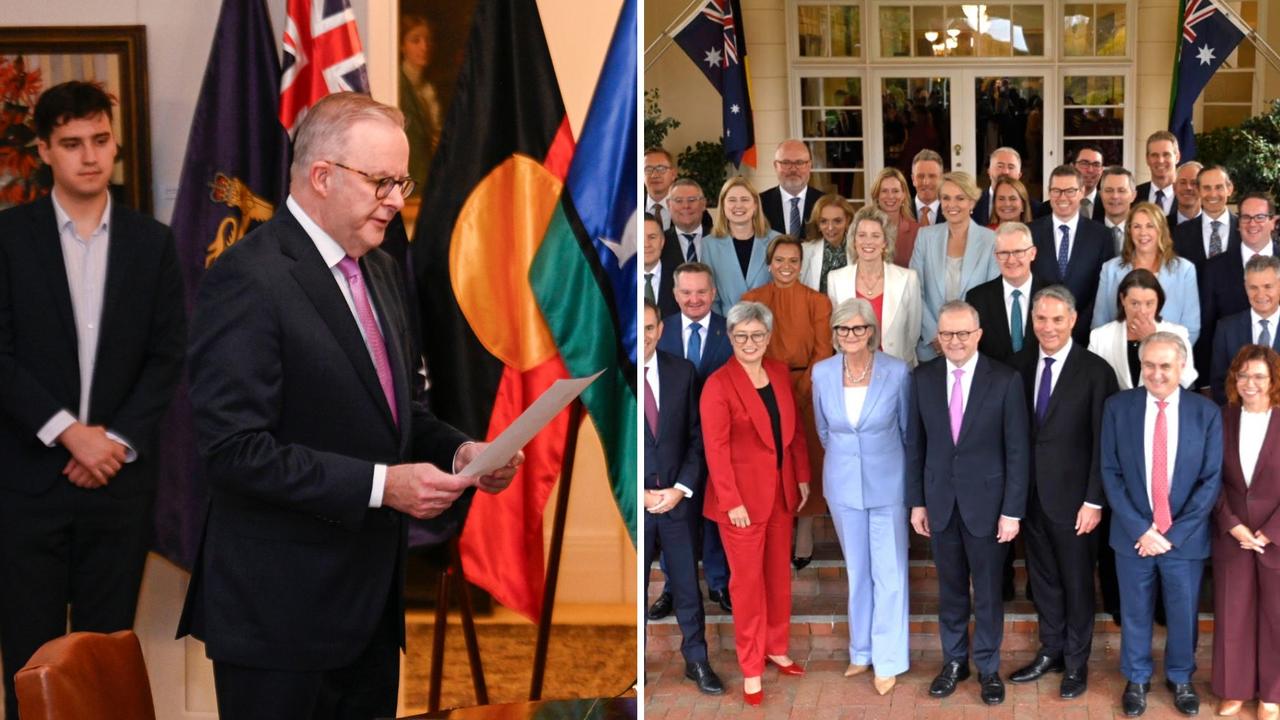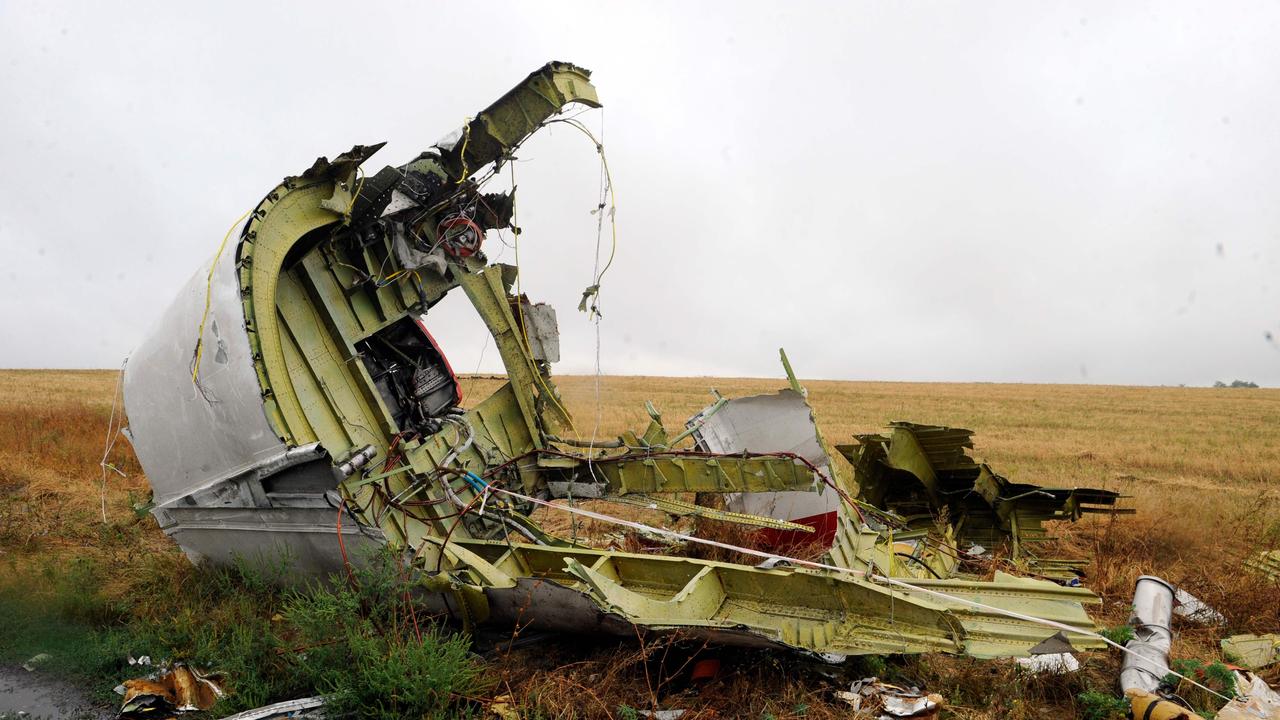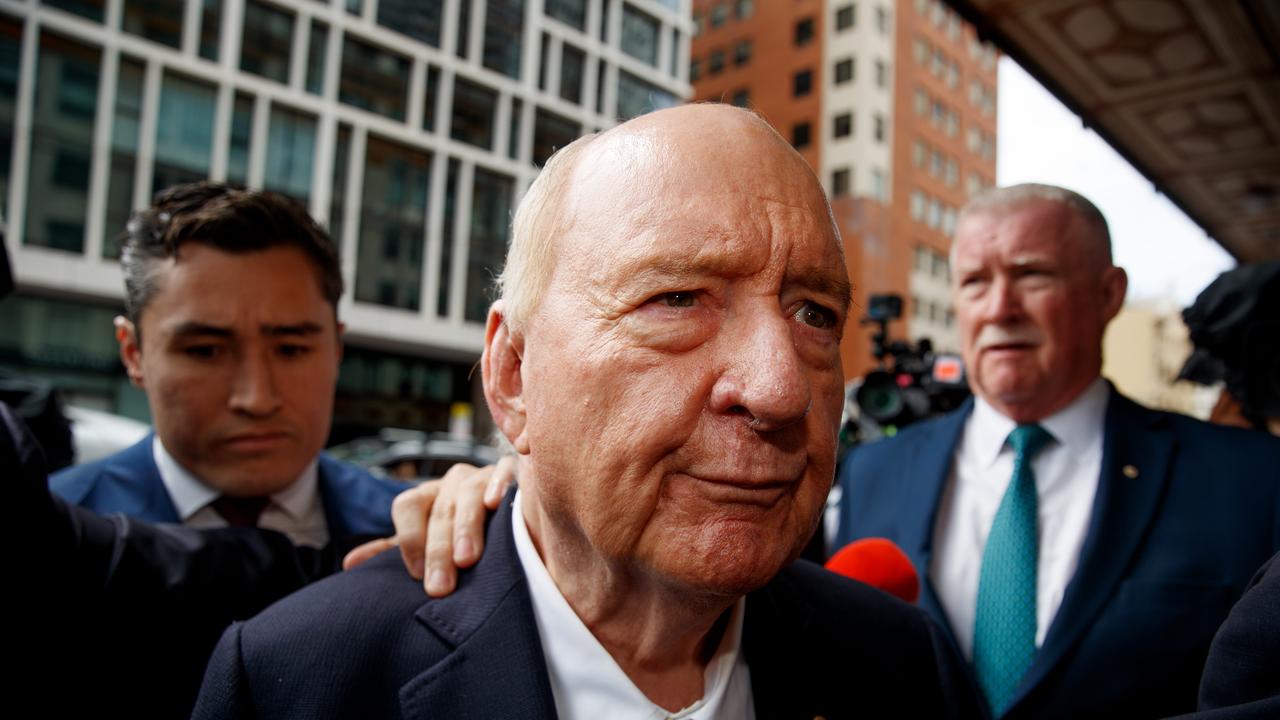AFP to be grilled over ‘serious allegations’ about how it treats members with PTSD
PAUL Gibbons developed a debilitating mental illness through his service in the AFP. He says they reacted by trying to “destroy” his integrity.
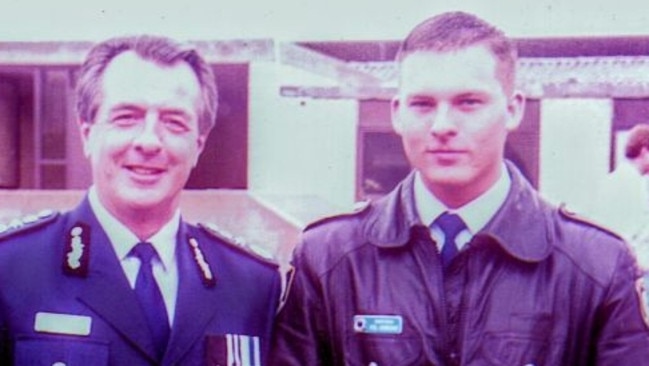
EXCLUSIVE
INDEPENDENT senator Nick Xenophon will grill the top brass of the Australian Federal Police after news.com.au exposed a mental health crisis among its members.
Senator Xenophon said this could lead to a “full blown senate inquiry”, amid claims that post-traumatic stress disorder, depression and institutional bullying are rife within the organisation.
The SA senator has committed to raising “serious allegations about how [the AFP] manages its employees” at the next Senate Estimates.
“I plan to raise these very serious allegations and seek to discuss them with my colleagues in the government, crossbench and opposition,” Senator Xenophon said.
Senator Xenophon’s comments come after a female AFP officer is believed to have taken her own life inside the AFP Melbourne headquarters this month.
Since then, more than 50 past and current AFP agents — some with top-secret clearance — and several former in-house psychologists have contacted news.com.au to raise serious concerns about cultural issues within the organisation and the welfare of its members.
AFP IN CRISIS: Read all the claims
Australian Federal Police Association president Angela Smith told news.com.au she would support calls for “a transparent external inquiry, independent of the AFP”.
“We clearly have a crisis on our hands,” she said.
In conversations with news.com.au, sworn members have told shocking stories of stress and mental illness developed during their employment with the AFP, and as a result of the response by management to their illnesses.
Many developed post-traumatic stress disorder after being exposed to traumatic on-the-job situations, including viewing thousands of “horrific” images of child pornography, the remains of victims killed in terror attacks, and mass murders on overseas deployments.
Many claimed they had been given inadequate support by the AFP after their workplace injuries. They claimed that rather than receiving support, they were bullied, intimidated, discredited and pushed out of their jobs by the AFP.
A number said they had contemplated or attempted suicide as a direct result of the stress they experienced on the job and the intimidation that followed.
“I shot a guy dead (to protect myself),” one AFP agent told news.com.au. “This affected me so much.
“The culture in the AFP was pretty much just ‘harden up, princess’.”
Many of the AFP agents who spoke to news.com.au called for an urgent inquiry into the AFP, saying the culture and work conditions had to change to prevent further suicides.
One AFP officer, who has been with the organisation for more than a decade, said he was aware of at least two AFP members who had taken their own lives in Victoria in the past 12 months.
The AFP would not comment on how many members, if any, had taken their own lives. One of the most heavily publicised deaths from within the AFP was former ACT chief police officer and AFP assistant commissioner Audrey Fagan, who took her own life in 2007.
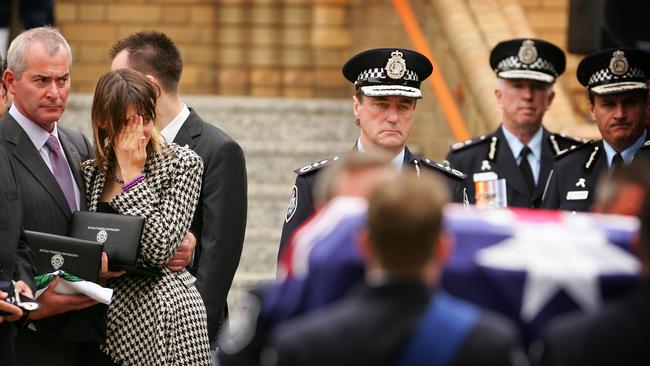
“This is a widespread crisis and more officers’ lives will be destroyed unless there is a restructure of the force to make it more accountable,” one agent told news.com.au.
Those who contacted news.com.au were willing to provide authentication of their employment with the AFP, but current members asked to remain unidentified for fear of reprisal.
However two members who had cut ties with the AFP were willing to be publicly identified. Their sentiments and allegations were echoed by dozens of active members.
“The AFP is a festering pit of bullying, nepotism and double standards,” one federal agent told news.com.au.
“I cannot say who I am because I fear retribution — it is real and would be swift.”
‘THE AFP WILL HIDE THE PROBLEM BUT WON’T TREAT THE SYMPTOMS’
Among those pushing for an inquiry is former AFP agent Paul Gibbons, 41, who survived a suicide attempt in 2005.
Mr Gibbons, who served in the Australian Navy, NSW Police Force and later as an AFP agent, said he developed chronic PTSD after being involved in several counter terrorism investigations.
“What did the AFP offer in the way of assistance? Nothing,” Mr Gibbons said.
“They tried to stitch me up with false allegations to tarnish my good reputation and went out of their way to completely destroy my integrity.”
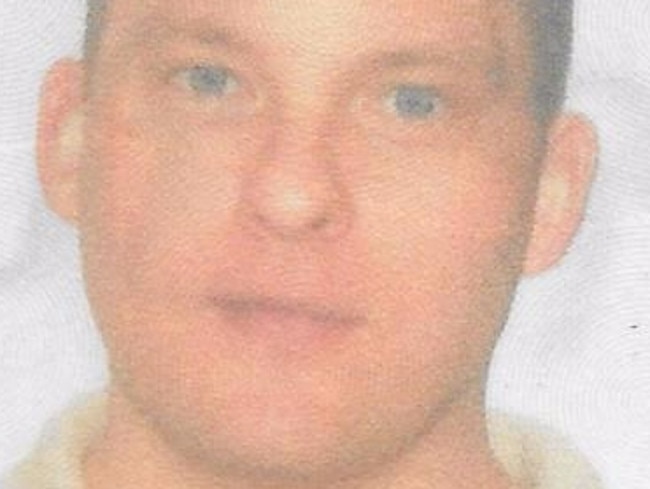
Mr Gibbons said there “needs to be a formal external inquiry into the AFP’s management of stress and work related psychological conditions such as PTSD, anxiety, stress and depression”.
“(AFP members are) working long hours and dealing with a lot of crap,” he said.
A spokesperson for the AFP declined to comment specifically on Mr Gibbons, but said the organisation “acknowledges first responders are at higher risk of trauma-caused mental injury than almost any other profession”.
“The AFP does not attempt to play down, or cover up reports of PTSD within the organisation but acknowledges the problem exists in all organisations performing a similar role.”
‘THEY TURN ON YOU AND ARE QUITE NASTY’
Former AFP agent and peacekeeper Paul Johnstone, 49, who has received bravery awards and commendations, had his “shoulder was ripped from the bone” when he rescued victims from a large mob attack in 2007 while deployed overseas. But he said the AFP “turned on” him after the injury occurred.
He said the organisation subjected him to “systematic workplace bullying” that eventually led to him leaving the organisation. He developed PTSD and later became suicidal.
“They target your work performance and … try to break you down psychologically,” Mr Johnstone said.
“There’s a culture where it’s OK when you’re fully fit and producing the results they want but the moment you get injured they turn on you and are quite nasty.”
Mr Johnstone said he was “forced to resign under pressure” after “a lot of bullying especially from senior management”.
‘WE CLEARLY HAVE A CRISIS ON OUR HANDS’
Australian Federal Police Association president Angela Smith told news.com.au she would support calls for “a transparent external inquiry independent of the AFP”.
“I acknowledge there are problems in the AFP that are affecting members’ welfare, health and wellbeing,” she said.
“(An inquiry) could cover topics such as member welfare, some management practices and the overemphasis on secrecy.”
‘THE REPORTS ARE HORRIFYING’
Opposition justice minister Clare O’Neil described the reports received by news.com.au from past and present agents as “horrifying”.
“AFP officers work incredibly hard to keep us safe,” Ms O’Neil said.
“They are at the frontline of the fight against terrorism, organised crime and child exploitation. “But instead of supporting these men and women, the government has cut the AFP budget by over $100 million.”
Justice Minister Michael Keenan said the death of an AFP officer in Melbourne last week was a tragedy.
“The AFP advises that its members are provided with extensive support services, and this is under constant review to ensure it meets the needs of its specialist workforce,” Mr Keenan said.
‘INTERNAL SYSTEMS ARE BROKEN’
An AFP spokesperson said Commissioner Andrew Colvin “has agreed for an independent expert body to review our mental health strategies in the first half of this year”.
That is further to an independent review into sexual harassment and bullying in the AFP by former sex discrimination commissioner Elizabeth Broderick in August last year.
Ms Broderick concluded the extent of harassment and bullying warranted an urgent need for action.
The commissioner committed to accept each of the 24 recommendations from the report. An AFP spokesperson said the organisation was still in the process of implementing the recommendations but had restructured its wellbeing services and appointed “a highly qualified and respected clinician in charge of the national function as our chief medical officer”.
“Among the first to be addressed was the creation of a Safe Place, to give members with concerns related to bullying or any other inappropriate behaviour, a place to raise their grievances with confidence the matter would be handled confidentially and with sensitivity,” a statement from the AFP read.
But more than 50 agents who contacted news.com.au said the system was broken.
“Sometimes it’s the luck of the draw as to who you have working on your side,” one active agent said.
“The ‘safe house’ they talk about does nothing, it doesn’t have any teeth. You can go and talk to them, but they do nothing — just more lip service.
“We hear from the executive that our welfare is important but that doesn’t translate into resources.”
HANDFUL OF WELFARE WORKERS FOR THOUSANDS OF STAFF
In recent years, AFP psychologists and welfare officers have been scaled back outside of Canberra. It is understood the AFP employs about three psychologists, one chaplain and two welfare officers, all based in Canberra, to serve 3481 sworn officers and a further 3000 members, nationwide.
An AFP spokesperson said it employed more psychiatrists now than it did “under our previous model” but would not be drawn on how many there were or where they were based.
“AFP management is aware of a number of cases where self-harm has been considered, and existing arrangements have resulted in successful interventions with individuals,” an AFP statement read.
The organisation said it had members who had suffered from PTSD but were able to return to fulltime work, in some cases in high-profile positions.
“Other members believe we can do better in our mental health support services, and that is what we continue to strive to do,” the spokesperson said.
The whistleblowers who contacted news.com.au said regular support was only available to them over the phone.
One former AFP psychologist, who spoke on the condition of anonymity, said agents were still seeking his services independently outside the organisation because adequate support was not provided in-house.
“The attitude is that if you can’t be operational then you might as well leave or be out the door,” he said.
“They are suffering from a range of conditions including anxiety and depression from being traumatised — sometimes not by over exposure to shocking things but to processes and systems.”
Beyondblue head of research and development Nick Arvanitis said more needed to be done regarding mental health in the emergency services.
“Strong leadership is required to establish an environment where workers feel comfortable to talk about how they are feeling without it impacting on their careers,” he said.
If you or someone you know needs help, phone Lifeline on 13 11 14, Beyondblue on 1300 224 636 or the 24-hour Suicide Call Back Service on 1300 659 467.
MAKE A DIFFERENCE: SIGN THE CHANGE.ORG PETITION
If you have information on issues within the AFP, contact megan.palin@news.com.au


